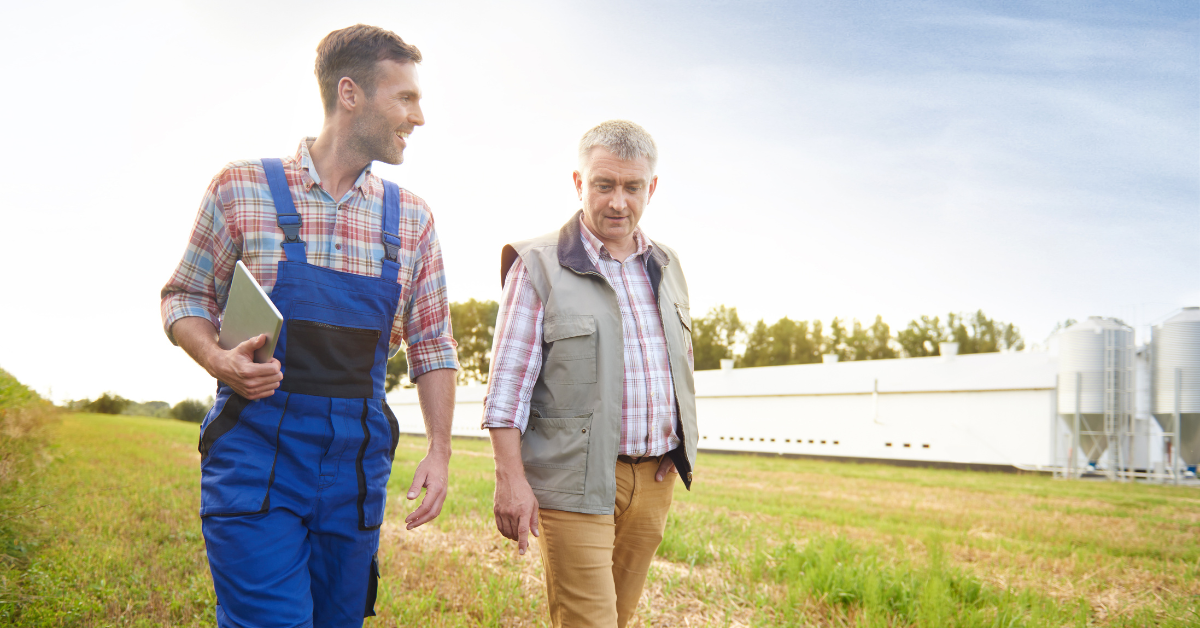By Tom FitzGerald, Partner Success Manager
As we wave goodbye to the winter of 2022/23, many farms now move into their new financial year. This time of year is a prime opportunity for accountants and farm consultants to collaborate with their farming clients, get under the hood of their business to help them understand how they’re tracking, and identify areas to improve performance for the year ahead.
The challenges farming teams have had to endure over the last 12 months have been extraordinary. Russia’s invasion of Ukraine shocked us to the core, and the impacts on food production have been huge. For example, the cost of Granular Urea in the UK has been on a rollercoaster journey from £287/tonne in January 2021, to £582/tonne in January 2023 (AHDB UK Fertiliser Prices). Yes, there has been a reduction in the last few months (Granular Urea price has recently decreased, from £864/tonne in September 2022), but navigating this price volatility has been a real challenge for many farms in the UK and overseas.
And it doesn’t stop there. There are new regulatory changes (e.g. the introduction of the Sustainable Farm Incentive) and market changes (e.g. new trade deals with the likes of Australia and New Zealand) to keep up with. There’s also the impact of climate change and what it means for the production of food. Our discussions with farmers, accountants, and farm consultants across the UK reveal that amongst all these challenges, the need for a well-connected farming team has never been more important.
Many farmers are the conduit between the agronomist, the accountant, the bookkeeper, the banker, the consultant, the vet, and the grain merchant - to name but a few. Each of these stakeholders in the farm has interdependencies on each other. For example, if agronomists can supply farmers with accurate yield estimates, and bookkeepers record actual financial transactions, whilst consultants and accountants provide accurate forecasts - it would be possible to accurately predict crop costs of production. An accurate cost of production or breakeven price would then enable better conversations between farmers and grain merchants, in order to negotiate the best end price for the produce of the farm and lock in desired profit levels.
Many accountants and farm consultants have recognised that the tides of UK farming have changed rapidly over the last couple of years, and the time to offer their farmers much-needed financial support is now. Failure to offer value-add services to farming clients will simply result in them looking elsewhere for advice. What we’re seeing is an increasing number of farm accountants and advisors utilise farm-specific budgeting, forecasting and reporting tools such as Figured to help farming teams keep on top of the numbers and ease uncertainty for their clients during these challenging and volatile times.
They have emphasised the ease and speed of using Figured’s farm financial management tools to keep everyone up to date on how the farm is performing. By providing farm stakeholders with access to a wealth of accurate and reliable production and financial information, less time is spent bringing everyone up to speed, collating numbers, and inputting data. It provides the farming team with clarity over the latest figures in real-time and creates efficiencies for advisors by enabling them to operate in a single workflow. Having accurate data at their fingertips also allows accountants and advisors to surface insights and comparisons back to their farming clients - adding greater value, and enabling deeper collaboration to plan for the future with confidence.
We’re looking forward to enabling even more accountants, advisers, and farmers with the tools they need to get more clarity over the farm business finances, and more importantly, the direction of travel, over the next 12 months.
To hear more about how Figured could help you and your farming clients please get in touch with us here.
This article orginally appeared on cla.org.uk


